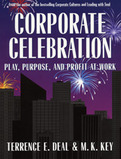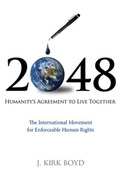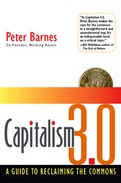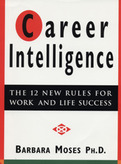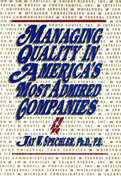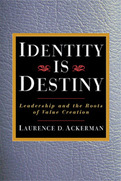Celebrations infuse life with passion and purpose. They summon the human spirit, reattach us to our roots, and help us soar toward new visions. Celebrations touch our hearts and fire our imaginations, bonding people together and connecting us to shared myths and values. Corporate Celebration shows how the ceremony and ritual of celebration can be brought to the workplace to restore company spirit, reinvigorate employee morale, build commitment and loyalty, improve quality and financial performance, and instill work with meaning and joy. This practical guide provides advice on the what, why, and how of corporate celebration.
The authors first distill what we know about the role that ritual and ceremony play in human organizations, then offer examples from multiple sectors and companies. They show how ceremonies can be used to build relationships, relieve tension, level the hierarchy, create excitement, transform losses into gains, and provide access to life's deeper lessons. In the second part, they examine a wide variety of situations where ritual and ceremony play a vital role-including recognition, triumphs, tragedies, transitions, product launches, and community outreach efforts. They detail the psychological benefits of seven types of celebrations: cyclical celebrations, recognition ceremonies, celebrations of triumph, rituals of comfort and letting go, succession rites, altruistic celebration, and play.
In the third part, they observe the makings, motions, and roles of key players, drawing practical wisdom from executives, managers, and employees who have participated in successful corporate rituals and celebrations. Acknowledging the potential downside of contrived or meaningless symbolic activity, they show how intended perks can become actual perils. Finally, they provide clear guidelines for the design of meaningful, top-flight celebrations, which arise from shared vision and values, recognize individuals as heroes and heroines, and authentically reflect the corporate spirit.
In a time when many organizations are suffering from eroded cultural values due to restructuring, reengineering, and downsizing, Corporate Celebration offers a refreshing approach to creating community in the workplace and revitalizing business.
- By the author of the bestselling Corporate Cultures, which was one of the most influential and groundbreaking business books of the 1980s
- Provides a provocative, practical guide for leaders looking for more effective ways to improve morale and performance
- Shows how celebration is an important factor in many of the major issues in today's business environment: leadership, profit, purpose, community, team building, and more
- Links celebration and fun to the financial bottom line
2010
The handbook of an extraodinary project:
2006
- Watch a video of Peter Barnes on ForaTV
- By a cofounder and former president of Working Assets
- Offers a startlingly original way to adapt capitalism to the 21st century
- Shows that protecting "the commons"--humanity's shared natural and cultural heritage--is the key to revitalizing capitalism and safeguarding the planet
1998
Moses paints a vivid picture of the current dislocations in the workplace-the extraordinary productivity pressures, the erosion of personal time-and their gut-wrenching effects on individuals and their families. She reveals how changes in the workplace have affected different generations differently-from 20-somethings trying to get a foothold in the workplace to 30-somethings concerned about getting ahead to aging boomers recently displaced from the workforce-and examines their values, their psychological profile, and their future opportunities. She also presents a striking vision of the future, showing what it will be like to live and work in tomorrow's world, where we will all be free agents.
In clear, practical terms, Career Intelligence shows how individuals can benefit from key future trends and details the skills they will need to succeed-from learning how to self-market to being able to communicate in powerful ways, from understanding business trends to preparing for areas of competence. Chock full of concrete examples and anecdotes that everyone can relate to, Career Intelligence also offers advice to parents concerned about "career proofing" their children; gives managers insights into how to promote career independence and self-reliance in their staff; and discusses solid ways organizations can improve morale and productivity. Comprehensive, practical, and eminently readable, Career Intelligence provides a visionary blueprint for ongoing career success.
- By the bestselling author of Career Planning Workbook-used by almost one million people in over 1,500 organizations worldwide
- Shows people how to take control of your career, even in the face of tumultuous changes in today's workplace
- Presents 12 new rules for career success based on leading-edge insights into today's radically changed workplace
2000
In this groundbreaking book, Laurence Ackerman reveals that identity - the unique characteristics that define who we are-is such a compass. Surprisingly, Identity Is Destiny shows that organizations who are best able to adapt to change are those whose leaders understand and "invest in"-rather than change-their companies' unique identities. It is when leaders align strategic development and day-to-day operations with their company's unique, value-creating capacities that identity truly becomes destiny.
The author illustrates how identity gives rise to culture, that identity precedes strategy, and that, most important, companies like individuals, can never be other than who they are.
Ackerman describes three features that mark organizations who are led according to their true identities: grand efficiency - having all parts of the enterprise working in sync; integrity - in the sense of unity, or "wholeness;" and endurance-the possibility of the company living in perpetuity. The author goes on to provide a comprehensive blueprint for "identity-based management"-everyday decision-making and action-that reveals a path to authentic leadership.
When it is clear who a company is, Ackerman explains, everything else follows naturally: making acquisitions that fulfill their promise; hiring and retaining people who "fit in;" developing marketing and product strategies that make sense for customers and the company alike; establishing partnerships that work.


